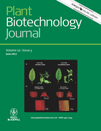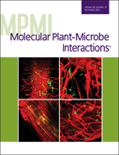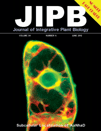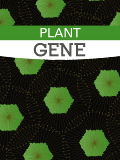
Horticulture Research
metrics 2024
Advancing horticultural innovation for a sustainable tomorrow.
Introduction
Horticulture Research, published by Oxford University Press Inc, is a leading open-access journal dedicated to advancing knowledge in the fields of horticulture, plant science, and related biotechnological disciplines. Since its inception in 2014, the journal has rapidly established itself as a premier outlet for research, boasting prestigious Q1 rankings across multiple categories including Biochemistry, Biotechnology, Genetics, Horticulture, and Plant Science in 2023. With exceptional Scopus rankings—placing it in the top 2% of Horticulture journals and 4% for Plant Science globally—Horticulture Research provides a vital platform for scholars, professionals, and students to disseminate and engage with innovative findings. Emphasizing the importance of open accessibility, the journal allows for widespread dissemination of impactful research, making it an invaluable resource for those striving to enhance sustainable horticultural practices and plant-based innovations. Its aim to bridge the gap between theoretical study and practical application reflects the dynamic nature of the horticultural sciences today.
Metrics 2024
 1.92
1.92 7.60
7.60 8.20
8.20 67
67Metrics History
Rank 2024
Scopus
IF (Web Of Science)
JCI (Web Of Science)
Quartile History
Similar Journals

Revista Ciencia Agronomica
Nurturing the growth of agricultural research and innovation.Revista Ciencia Agronomica is a leading open access journal published by the Universidade Federal do Ceará, Departamento de Geociências, dedicated to advancing the field of agricultural sciences. Established in 2008, the journal has emerged as a significant platform for the dissemination of original research and innovative advancements in areas including agronomy, horticulture, and soil science, with a dedicated convergence of years extending to 2025. With an impactful presence in academic circles—ranking in Q3 for Agronomy and Crop Science and Soil Science and Q2 for Horticulture in 2023—this journal provides vital insights for researchers and practitioners alike. Although specific HIndex metrics are currently unavailable, the journal's Scopus rankings attest to its relevance, placing it in the 52nd, 44th, and 43rd percentiles across multiple pertinent categories. Since transitioning to an open access model in 2010, Revista Ciencia Agronomica has committed to maximizing the reach and impact of its published work, thereby ensuring valuable contributions to global agricultural knowledge.

PLANT BIOTECHNOLOGY JOURNAL
Empowering research to transform agriculture and biotechnology.Plant Biotechnology Journal, published by Wiley, is a premier open-access platform dedicated to advancing the field of plant biotechnology. Since its inception in 2003, this journal has played a pivotal role in disseminating high-quality research that enhances our understanding of plant genomics, biochemistry, and molecular biology. With an impressive impact factor and a prominent position in Q1 quartiles across Agronomy, Crop Science, Biotechnology, and Plant Science, it ranks among the top journals globally, reflecting its significant influence in the agricultural and biological sciences. Researchers and professionals can access cutting-edge studies and reviews that facilitate innovation in sustainable crop production and biotechnology applications. The journal's transition to an open access model since 2016 has further amplified its reach, ensuring that vital research is available to a global audience, promoting collaboration and knowledge sharing within the scientific community.

MOLECULAR PLANT-MICROBE INTERACTIONS
Fostering Innovations in Plant-Microbe ResearchMOLECULAR PLANT-MICROBE INTERACTIONS is a premier journal dedicated to the exploration of the complex interactions between plants and microbes, providing a vital platform for researchers in agronomy, crop science, and plant physiology. Published by the American Phytopathological Society, this journal has been serving the academic community since 1988 and continues to be at the forefront of advances in molecular biology and plant-microbe symbiosis, with a notable impact factor reflecting its esteemed position in the field. As a Q1 journal in both Agronomy and Crop Science and Medicine (miscellaneous), and holding a significant ranking in the Scopus categories, it is recognized for publishing high-quality, peer-reviewed research that is essential for understanding and improving agricultural practices. Although it is not an open-access journal, it provides critical insights that facilitate collaborative efforts among researchers, professionals, and students alike. The journal’s objectives focus on enhancing our understanding of plant health, disease resistance, and ecological sustainability, making it a crucial resource for anyone interested in the intricate research landscape of plant-microbe dynamics.

Horticulture Environment and Biotechnology
Pioneering Research at the Crossroads of Environment and ScienceHorticulture Environment and Biotechnology is a prestigious journal published by the Korean Society of Horticultural Science, dedicated to advancing knowledge in the fields of horticulture, biotechnology, and plant science. Since its inception in 2011, this journal has played a crucial role in disseminating high-quality research, evidenced by its 2023 category quartile rankings, which position it in Q1 for Horticulture and Q2 for Biotechnology and Plant Science. With impressive Scopus rankings, including Rank #18 out of 115 in Horticulture, the journal continues to demonstrate its significance within the academic community by contributing to innovative practices and findings that impact both environmental sustainability and horticultural advancements. Currently, the journal is accessible to a global audience, facilitating the exchange of ideas and research outcomes with no open-access fees. Horticulture Environment and Biotechnology strives to support researchers, professionals, and students alike by providing a platform for critical discussions on the intersection of horticultural science and biotechnology, thereby fostering the development of sustainable agricultural practices that align with contemporary challenges.

Annual Plant Reviews Online
Empowering Knowledge in Plant SciencesAnnual Plant Reviews Online, published by WILEY, serves as a premier academic resource dedicated to the evolving field of plant sciences, including specialties in agronomy, horticulture, and food science. With an impressive Q1 ranking in Horticulture and Q2 classifications in Agronomy, Crop Science, and Plant Science, this journal reflects a high standard of scholarly contribution, evidenced by its positioning in the 75th percentile range among agricultural and biological sciences in leading Scopus rankings. Aimed at researchers, professionals, and students alike, the journal covers a broad spectrum of plant-related topics and trends, aiming to enhance the understanding of plant biology and its applications. Offering timely insights and critical reviews, Annual Plant Reviews Online connects the global community with essential knowledge, supporting advancements in sustainable practices and innovations in agriculture. Researchers and students can access its content seamlessly, contributing to ongoing discussions in plant science and fostering academic growth.

Molecular Horticulture
Innovating Horticulture Through Molecular InsightsMolecular Horticulture is a prestigious journal published by SpringerNature, dedicated to advancing knowledge in the fields of Agronomy, Crop Science, Horticulture, and Molecular Biology. Based in the United Kingdom, this journal, with ISSN 2730-9401, is recognized for its high-quality, peer-reviewed research and has rapidly established itself within the academic community, achieving a remarkable Q1 ranking across its relevant categories as of 2023. With a strong focus on innovative research that explores the intersection of molecular biology and horticultural science, Molecular Horticulture provides valuable insights that are essential for researchers and professionals aiming to enhance crop production and sustainability practices. As part of the Scopus database, the journal ranks impressively within its fields, holding notable positions such as Rank #7 in Horticulture and Rank #42 in Agronomy and Crop Science. While currently published through traditional access models, the journal remains accessible to a wide audience of scientists, educators, and students eager to stay informed on the latest discoveries and trends in plant science.

Journal of Integrative Plant Biology
Fostering Interdisciplinary Growth in Plant ResearchThe Journal of Integrative Plant Biology, published by WILEY, is a premier academic journal that has been at the forefront of advancing research in plant biology since its inception in 2005. With a notable impact factor and a robust Scopus ranking—positioned at #7 out of 516 in Plant Science and #18 out of 438 in Biochemistry—this journal is recognized as a Q1 journal in multiple categories, including Biochemistry and Plant Science. The journal aims to bridge the gaps between various disciplines in plant research, emphasizing integrative and interdisciplinary approaches to understanding plant biology. With options for open access, the Journal of Integrative Plant Biology ensures broad visibility and impact of research findings, making it an invaluable resource for researchers, professionals, and students looking to stay informed on innovative advancements in the field. Its headquarters are located in the United Kingdom, further amplifying its reach within the global academic community.

Plant Gene
Exploring the Genetic Blueprint of FloraPlant Gene is an esteemed academic journal dedicated to the comprehensive study of plant genetics, genomics, and biotechnology. Published by Elsevier, this journal operates from its base in the Netherlands and has made significant strides since its inception in 2015, with a converged year span extending until 2024. As an integral resource in the field, Plant Gene is categorized in the Q2 quartile for Plant Science and Q3 for Biochemistry, Biotechnology, and Genetics as per the 2023 evaluations, reflecting its growing influence and quality of research. With an impactful presence in Scopus rankings—positioned at #145 in Plant Science—this journal serves as a platform for presenting innovative findings and advancing knowledge in plant science. Researchers, professionals, and students will find access to cutting-edge research articles that not only drive the scientific community forward but also offer invaluable insights into the genetic mechanisms underpinning plant development and resilience. While the journal currently operates under a subscription-based model, it aims to broaden accessibility and foster a diverse range of scholarly discussions in the ever-evolving field of plant genetics.

JOURNAL OF HORTICULTURAL SCIENCE & BIOTECHNOLOGY
Empowering researchers to shape the future of plant science.JOURNAL OF HORTICULTURAL SCIENCE & BIOTECHNOLOGY, published by Taylor & Francis Ltd, stands as a prestigious platform in the realms of both horticulture and biotechnology. With an ISSN of 1462-0316 and an E-ISSN of 2380-4084, this journal showcases cutting-edge research that advances our understanding of plant science and genetic innovation. Operating under the publication umbrella from 1996 to 2024, the journal has achieved notable rankings, placing in the Q3 quartile for Genetics and Q2 for Horticulture in 2023. With a Scopus ranking of #25/115 in Agricultural and Biological Sciences (Horticulture) and a respectable 78th percentile, it is highly regarded among researchers and professionals alike. While currently not designated as Open Access, the journal remains crucial for academics keen on disseminating groundbreaking findings and techniques that foster advancements in agricultural productivity and sustainability. As an essential resource for researchers, professionals, and students, JOURNAL OF HORTICULTURAL SCIENCE & BIOTECHNOLOGY not only facilitates knowledge sharing within its community but also serves as a vital reference point for future innovations in the field.

Zemdirbyste-Agriculture
Empowering the agricultural community through open access insights.Zemdirbyste-Agriculture is a prominent journal dedicated to advancing the field of agricultural sciences, with a particular focus on agronomy and crop science. Published by the Lithuanian Research Centre Agriculture & Forestry, this open access journal has been fostering knowledge sharing and scientific discourse since 2004, allowing researchers, professionals, and students unrestricted access to its content. Located in the beautiful country of Lithuania, specifically at Vytautas Magnus University, this journal plays a significant role in disseminating innovative research findings. With a 2023 Scopus ranking of #246 out of 406 in the category of Agricultural and Biological Sciences, Zemdirbyste-Agriculture falls within the Q3 quartile, reflecting its growing influence in the academic community. This journal, which has converged its publication focus from 2008 to 2023, aims to provide a platform for scientists to share their critical insights on agricultural practices, sustainability, and technological advancements in crop science, thereby contributing to the global discourse on food security and environmental health.